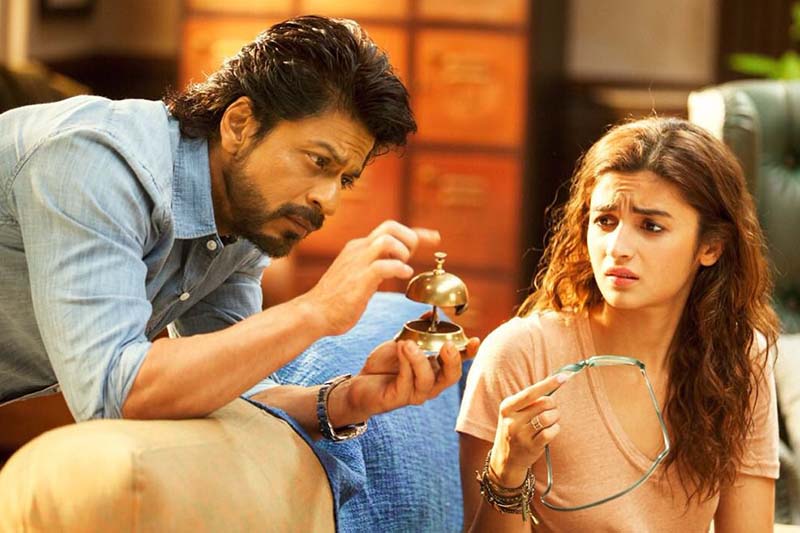Complicated mess
Dear Zindagi
Genre: Drama
Director: Gauri Shinde
Cast: Alia Bhatt, Shah Rukh Khan, Kunal Kapoor, Ali Zafar, Angad Bedi, Ira Dubey
Being screened at QFX Cinemas
Kathmandu
Mental health is important for a peaceful and happy life, and mental illness with the help of right psychiatrist is easily treatable. Dear Zindagi tries to draw your attention to this issue — often heard that it needs serious treatment — in a very ordinary way, with nothing fresh to offer. Thus, what could have been a very powerful story has turned out to be an immature flick trying to preach some life lessons.
Dear Zindagi revolves around a young and talented cinematographer Kaira (Alia Bhatt). She is looking for a break to shoot a feature film, and has very caring and supportive friends. But she has an unsuccessful love life and her relationship with her parents is chaotic. To deal with this mess, she seeks the help of Dr Jehangir Khan aka Jug (Shah Rukh Khan). The ‘cool’ doctor helps Kaira deal with her problems, move on from the past and embrace life to enjoy the present.
While telling you “to not let the past blackmail your present that will ruin your beautiful future”, Jug goes on to deliver some more preachy life lessons. It is one of the biggest flaws of Dear Zindagi — this DD (Dimag ka Doctor), who tries to portray a cool character, in fact becomes preachy again and again, failing to put across the messages subtly. Anyone could have played the poorly written character of Jug, and SRK cannot make him authentic here. Instead, one feels Jug’s resemblance to the star King Khan, and not
a psychiatrist.
The other supporting cast do not have background and are not explored — be it Kaira’s boyfriends Raghuvendra (Kunal Kapoor), Sid (Angad Bedi) and Rumi (Ali Zafar) or the protagonist’s friends Fatima (Ira Dubey) and Jackie (Yashaswini Dayama). Kapoor, however, shines in his unexplored character despite limited screen space.
Dear Zindagi is an Alia Bhatt film and the entire movie rests on her shoulders. Delivering diverse emotional states in a single scene, she shines as Kaira, though the director fails to control her in certain scenes, and she goes overboard. At times it feels she is unable to grow beyond her Highway character, that also had issues with her family.
Gauri Shinde, also the writer of the film, has tried to fit in many issues in a script — mental health, parenting issues, woman with multiple relationships, societal pressure faced by a woman of marriageable age. As a director, she fails to blend these issues smoothly, making the film a complicated and chaotic watch.
Again, the connections of different incidents in the film are forceful, including comedy as well as the songs’ lyrics.
Certain scenes could have been removed from the film that feature in the more engaging second half. The second half benefits from its cinematography too — Goa and breaking free of its lead characters have been captured beautifully here.






